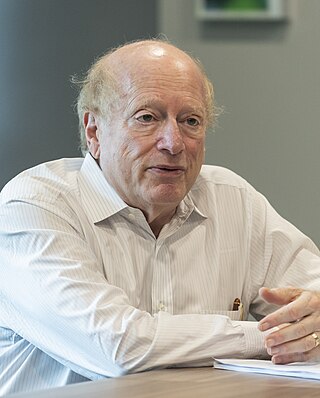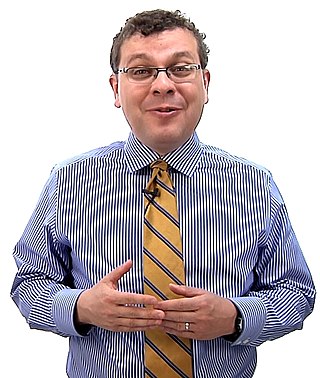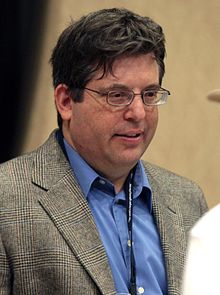Lochner v. New York, 198 U.S. 45 (1905), was a landmark decision of the U.S. Supreme Court holding that a New York State statute that prescribed maximum working hours for bakers violated the bakers' right to freedom of contract under the Fourteenth Amendment to the U.S. Constitution. The decision has been effectively overturned.
The Lochner era was a period in American legal history from 1897 to 1937 in which the Supreme Court of the United States is said to have made it a common practice "to strike down economic regulations adopted by a State based on the Court's own notions of the most appropriate means for the State to implement its considered policies". The court did this by using its interpretation of substantive due process to strike down laws held to be infringing on economic liberty or private contract rights. The era takes its name from a 1905 case, Lochner v. New York. The beginning of the era is usually marked earlier, with the Court's decision in Allgeyer v. Louisiana (1897), and its end marked forty years later in the case of West Coast Hotel Co. v. Parrish (1937), which overturned an earlier Lochner-era decision.
Constitution in Exile is a controversial term that refers to the situation resulting from provisions of the United States Constitution allegedly not having been enforced according to their "original intent" or "original meaning". Some originalists might argue, for example, that the Commerce Clause and Necessary and Proper Clause do not authorize economic legislation dating all the way back to the New Deal.

The Volokh Conspiracy is a legal blog co-founded in 2002 by law professor Eugene Volokh, covering legal and political issues from an ideological orientation it describes as "generally libertarian, conservative, centrist, or some mixture of these." It is one of the most widely read and cited legal blogs in the United States. The blog is written by legal scholars and provides discussion on complex court decisions.
Reva B. Siegel is the Nicholas deB. Katzenbach Professor of Law at Yale Law School. Siegel's writing draws on legal history to explore questions of law and inequality, and to analyze how courts interact with representative government and popular movements in interpreting the Constitution. She is currently writing on the role of social movement conflict in guiding constitutional change, addressing this question in recent articles on reproductive rights, originalism and the Second Amendment, the "de facto ERA," and the enforcement of Brown. Her publications include Processes of Constitutional Decisionmaking ; The Constitution in 2020 ; and Directions in Sexual Harassment Law. Professor Siegel received her B.A., M.Phil, and J.D. from Yale University, clerked for Judge Spottswood William Robinson III on the D.C. Circuit, and began teaching at the University of California at Berkeley. She is a member of the American Academy of Arts and Sciences, and is active in the American Society for Legal History, the Association of American Law Schools, the American Constitution Society, in the national organization and as faculty advisor of Yale's chapter. She was elected to the American Philosophical Society in 2018.
Michael William McConnell is an American jurist who served as a United States circuit judge of the United States Court of Appeals for the Tenth Circuit from 2002 to 2009. Since 2009, McConnell has been a professor and Director of the Stanford Constitutional Law Center at Stanford Law School. He is also a senior fellow at Stanford University's Hoover Institution, and Senior Of Counsel to the Litigation Practice Group at Wilson Sonsini Goodrich & Rosati. In May 2020, Facebook appointed him to its content oversight board. In 2020, McConnell published The President Who Would Not Be King: Executive Power under the Constitution under Princeton University Press.

Thomas Eugene Baker is a constitutional law scholar, Professor of Law, and founding member of the Florida International University College of Law. With four decades of teaching experience, Baker has authored eighteen books, including two leading casebooks, has published more than 200 scholarly articles in leading law journals, and has received numerous teaching awards.

Mark Victor Tushnet is an American legal scholar. He specializes in constitutional law and theory, including comparative constitutional law, and is currently the William Nelson Cromwell Professor of Law at Harvard Law School. Tushnet is identified with the critical legal studies movement.

Mari J. Matsuda is an American lawyer, activist, and law professor at the William S. Richardson School of Law at the University of Hawaiʻi at Mānoa. She was the first tenured female Asian American law professor in the United States, at University of California, Los Angeles (UCLA) School of Law in 1998 and one of the leading voices in critical race theory since its inception. Matsuda returned to Richardson in the fall of 2008. Prior to her return, Matsuda was a professor at the UCLA School of Law and Georgetown University Law Center, specializing in the fields of torts, constitutional law, legal history, feminist theory, critical race theory, and civil rights law.

Burt Neuborne is the Norman Dorsen Professor of Civil Liberties at New York University School of Law and the founding legal director of the Brennan Center for Justice.

Dale Carpenter is an American legal commentator and Professor of Law at the SMU Dedman School of Law. He formerly served as the Earl R. Larson Professor of Civil Rights and Civil Liberties Law at the University of Minnesota Law School for sixteen years. As a professor, Carpenter specializes in constitutional law, the First Amendment, Due Process and Equal Protection clauses, sexual orientation and the law, and commercial law.
John V. Orth is an American legal scholar and author. He is the William Rand Kenan Jr. Professor of Law at the University of North Carolina School of Law.

Louise Weinberg is an American legal scholar. She is known for her writings on legal theory, due process, and choice of law, and for her groundbreaking 1994 book, a 1200-page study on federal courts.
Douglas Gordon Baird is an American legal scholar, the Harry A. Bigelow Distinguished Service Professor and a former dean of the University of Chicago Law School. He joined the faculty in 1980 and served as the dean from 1994 to 1999. He is a specialist in the field of bankruptcy law.
Louis Michael Seidman is the Carmack Waterhouse Professor of Constitutional Law at Georgetown University Law Center in Washington, D.C.. He is a constitutional law scholar and major proponent of the critical legal studies movement. Seidman's 2012 work is On Constitutional Disobedience, where Seidman challenges the viability of political policy arguments made in reference to constitutional obligation.

Charles Sumner Lobingier was an American jurist who served as a judge of the Philippine Court of First Instance from 1904 to 1914 and as Judge of the United States Court for China in Shanghai from 1914 to 1924. He was also the author of a number of books on international and comparative law.
In law, an appeal is the process in which cases are reviewed by a higher authority, where parties request a formal change to an official decision. Appeals function both as a process for error correction as well as a process of clarifying and interpreting law. Although appellate courts have existed for thousands of years, common law countries did not incorporate an affirmative right to appeal into their jurisprudence until the 19th century.

Ilya Somin is a law professor at George Mason University, B. Kenneth Simon Chair in Constitutional Studies at the Cato Institute, a blogger for the Volokh Conspiracy, and a former co-editor of the Supreme Court Economic Review (2006–2013). His research focuses on constitutional law, property law, migration rights, and the study of popular political participation and its implications for constitutional democracy.
Brian C. Kalt is an American legal scholar at the Michigan State University College of Law, particularly known for his research of the constitution of the United States.
Keith E. Whittington is an American political scientist and legal scholar. He has been the William Nelson Cromwell Professor of Politics at Princeton University since 2006. In July 2024, he will join the Yale Law School faculty. Whittington's research focuses on American constitutionalism, American political and constitutional history, judicial politics, the presidency, and free speech and the law.









